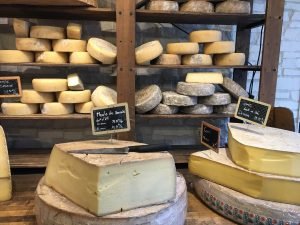SEARCH BLOG POSTS
Do You Have To Give Up Cheese To Be Healthy And Lose Weight?
 If you’re like many people, you’ve read about the give up cheese to be healthy and lose weight, but that’s not so. Not all types of cheese are alike. For instance, if you purchase cheese that came from the milk of grass fed cows and certified organic, you’re on the right road to healthier eating than opting for highly processed cheese with additives, low fat cheese or ones that have come milk from cows that have been treated with hormones or antibiotics. Some of the non-organic cheese comes from milk from cows that have animal by products, plastic pellets and even manure in the feed for roughage or bulk.
If you’re like many people, you’ve read about the give up cheese to be healthy and lose weight, but that’s not so. Not all types of cheese are alike. For instance, if you purchase cheese that came from the milk of grass fed cows and certified organic, you’re on the right road to healthier eating than opting for highly processed cheese with additives, low fat cheese or ones that have come milk from cows that have been treated with hormones or antibiotics. Some of the non-organic cheese comes from milk from cows that have animal by products, plastic pellets and even manure in the feed for roughage or bulk.
Lactose intolerance doesn’t have to stop you from eating cheese.
Not all cheese products have the same amount of lactose in them. Some cheese is quite low in it. You need to look for cheese with trace levels of lactose, those below 0.5 grams. You’ll find cheese like this is naturally aged, where the lactose is removed when the whey drains off the cheese. Cheese in this category include camembert, cheddar, Provolone, Gouda, blue, Parmesan and Swiss.
What about the fat?
Too often people choose the low or no fat option, thinking it’s better for them. Everyone needs some fat in their diet. Other ingredients, far less healthy, are added to give more flavor. Not only is full fat cheese healthy, it makes you feel fuller, making it easier to lose weight. A 12-week study in Australia used 40 subjects who volunteered to go on a low calorie diet. The group was divided by those who ate a traditional calorie-reduced diet with three servings of cheese and those who ate a low calorie diet but included two more servings of cheese, low fat milk and yogurt. Who lost the most weight? The group that included more dairy. They also lowered their blood pressure and reduced abdominal fat the most.
Cheese has been given a bum rap.
While all dairy products have been villified and the fat removed from some to “make it healthier,” it’s just not true. Cheese eaters get an amazing combination of nutrients with health benefits that often weren’t recognized previously. One study showed that eating high-fat cheese even raised the HDL—good—cholesterol. The 12-week Danish study used 140 subjects divided into three groups. One group ate 80 grams of high-fat cheese, the second ate 80 grams of low Some cheese, such as Roquefort, has been linked to improved cardiovascular health and longevity. It offers anti-inflammatory properties.
- Cheese can be a good source of amino acids, omega-3 fats, vitamin B2, B12, A and D.
- Cheese from unpasteurized milk from grass-fed cows raised in the pasture, rather than confined in feeding stations may be hard to find, but well worth getting. It’s heart healthy and boosts your metabolism, plus far tastier.
- Cheese from grass fed cows also has the perfect ration of Omega6 fats to Omega3, contains more CLA—a potent cancer fighter and is higher in nutrients like calcium, magnesium, beta-carotene and Vitamins A, D, C and E.
